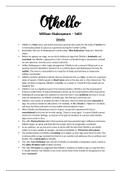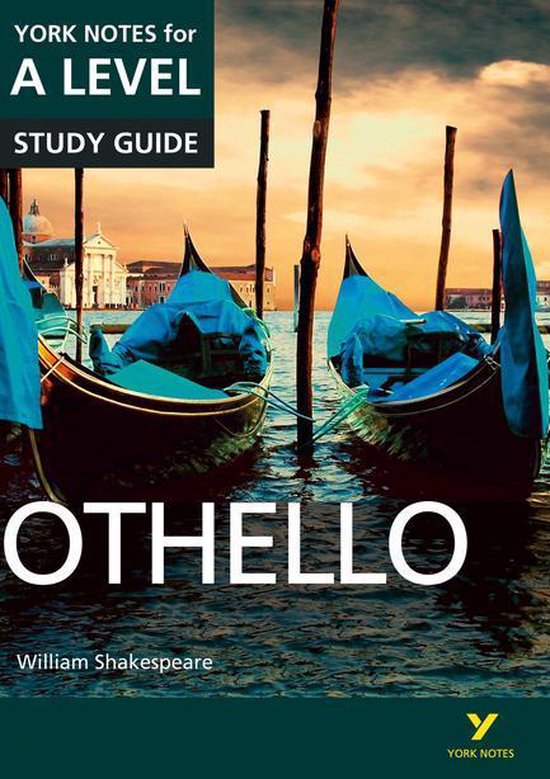Summary
Summary Othello - A* - A-LEVEL - English Literature - AQA - Complete Revision Notes
Full set of revision notes for the play 'Othello' by William Shakespeare, created under the learning objectives of the AQA exam board. I created this resource as my own source of revision, and was able to achieve consistent A*, A and B grades throughout year 12 and year 13. Includes details regard...
[Show more]




